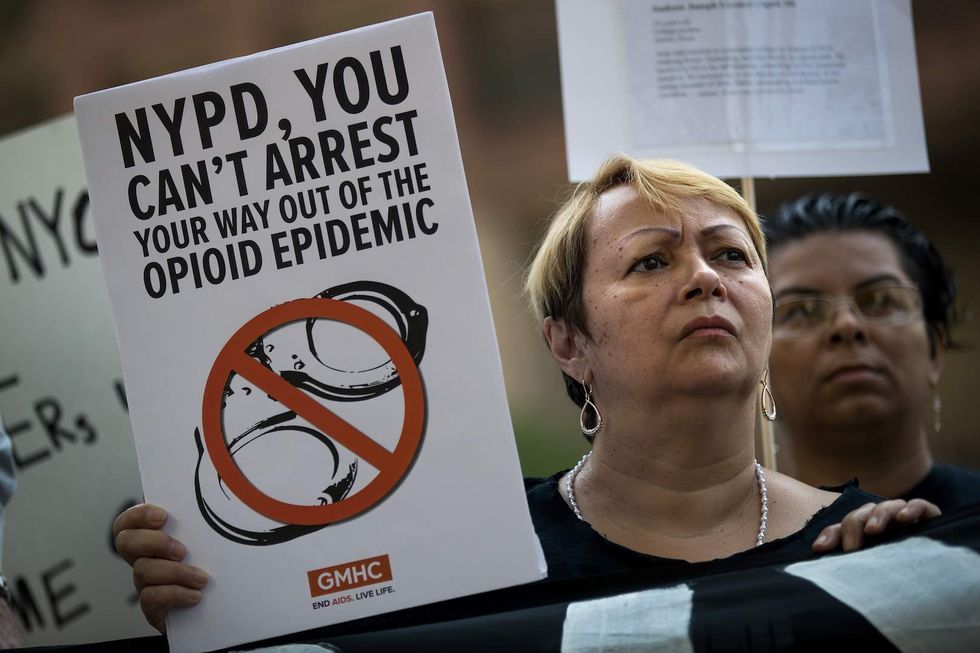
President Donald Trump announced on August 10 that the opioid epidemic was a national emergency. Formal paperwork is still being processed. (Drew Angerer/Getty Images)

It's been a busy month. The frantic news cycle keeps dropping bombshell after bombshell on us, and sometime it causes important stories from previous weeks to get put on the back burner. TheBlaze will follow up on these stories periodically to see how they've progressed since they fell off the Twitter trending topics list. In this edition, we revisit President Donald Trump declaring opioids a national emergency.
Remind me what this is about?
Trump announced Thursday, Aug. 10, that the opioid epidemic in America was serious enough to be declared a national emergency, vowing that the administration would devote significant resources to the issue, according to US News & World Report.
"The opioid crisis is an emergency, and I’m saying officially right now it is an emergency," Trump said. "It’s a national emergency. We’re going to spend a lot of time, a lot of effort and a lot of money on the opioid crisis."
A White House Commission report detailed that 142 people die daily from opioid overdose.
Any updates?
VICE News reported Tuesday that since Trump's announcement, the formal paperwork to declare a national state of emergency has not been signed.
A White House spokesperson told VICE that potential measures to combat the opioid crisis are being reviewed by the legal team at Trump's instruction.
“The president recently instructed his administration to take all appropriate and emergency measures to confront the opioid crisis,” the spokesman said. “Right now these actions are undergoing an expedited legal review.”
What needs to happen?
When the formal state of emergency is declared, cities and states will be able to access federal Disaster Relief Funds. The fund currently sits at approximately $1.4 billion. Typically used for natural disasters, the fund could be used to finance drug treatment programs and to equip first responders to better address overdoses.
“[The state of emergency] could give the administration leverage to push for new sentencing legislation,” Grant Smith of the Drug Policy Alliance told the Washington Post on the day Trump made his announcement. “Or legislation that enhances [drug] penalties or law enforcement response. It could give [Attorney General Jeff] Sessions more leverage to push the agenda that he has been pushing.”
We should continue to keep a close eye on this story and ensure it stays in the public consciousness, because lives are being lost daily to this crisis.
Aaron Colen
Aaron is a former staff writer for TheBlaze. He resides in Denton, Texas, and is a graduate of the University of Oklahoma where he earned his Bachelor of Arts in journalism and a Master of Education in adult and higher education.